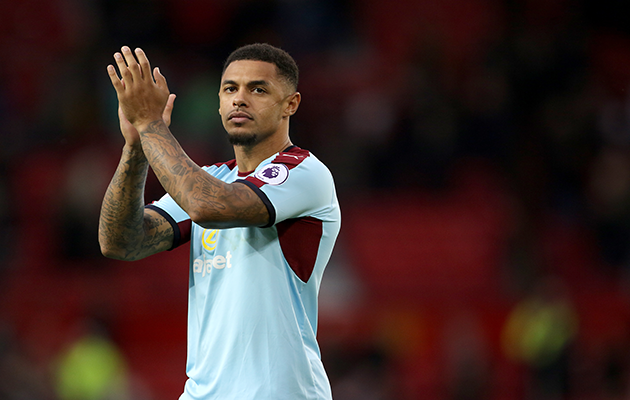Justice, as we all know, is not of this world and I do not think it was meted out by the Football Association to Burnley’s Andre Gray.
The 25-year-old centre forward was, beyond doubt, guilty of a repugnant anti-homosexual outburst, but that was several years ago when playing non League football. Since then, those who know him insist that he has utterly changed and matured, emerging from a violent background to which a scar on his cheek still testifies.
Had he been punished for his lamentable outburst at the time, all well and good, but he wasn’t, and to exhume his offence now after so long, even if there is no such thing as a statute of limitations for such a period, seemed gratuitous. A large fine, several weeks’ suspension. Surely at the most a public reprimand could have been enough.

QPR manager Jimmy Floyd Hasselbaink faces allegations of impropriety.
Meanwhile, the FA have taken no action at all so far in the curious case of Jimmy Floyd Hasselbaink, exposed by undercover reporters as demanding £55,000 when offered £35,000 to sign players for QPR from a fictitious Asian source. Jimmy admitted he had been “naïve.” “The word you are looking for Jimmy,” wrote that incisive columnist Rod Liddle, “was greedy.”
Yet there has been no sequel. The QPR owner, garrulous Tony Fernandez, waved the matter aside. QPR have demanded chapter and verse, the filmed evidence seems formidable, and there Jimmy still is.
He has committed no criminal offence, true, but isn’t this the kind of case which the FA should be taking action on? They do, as we saw some time ago in the case of John Terry, tend to move in a mysterious way.

Carlos Alberto holds the World Cup trophy aloft.
Carlos Alberto, scorer of one of the finest goals ever seen in a World Cup final, Brazil’s fourth against Italy in the Azteca Stadium which I was lucky enough to see, has died.
His exhilarating drive put a proper conclusion to the 1970 final. Running onto a perfect layoff by Pele, in his pomp again after this disappointments of 1966, Carlos Alberto drove his right-footed shot time with supreme precision and power.
Italy, for all their defensive negativity, still laid themselves open to such intrusions. Jairzinho, Brazil’s dynamic outside right, frequently drew left back Giacinto Facchetti into the middle, while Gigi Riva’s insistence on playing as a striker rather than in his former and much celebrated position on the left wing inevitably left space for Carlos Alberto to attack.
The irony of it being that he was as accomplished a defender as he was an attacker. Out on the left wing, he could probably have led Carlos Alberto a merry dance while preventing him from breaking forward.
Off the field, he was a man of charm and geniality, 53 times capped for his country, and captain on that afternoon in Mexico.
But there was a darker side to his personality, as recounted to me once by my colleague Paul Gardner, who recalled a match in which, late in his playing career, Carlos Alberto was playing for the New York Cosmos in New Jersey. At one point, he committed a cruel and unprovoked foul on a young opponent. When Paul asked him about this afterwards in the Cosmos dressing room the answer, I recall, was merely an enigmatic smile.
https://www.youtube.com/watch?v=M5HbmeNKino







